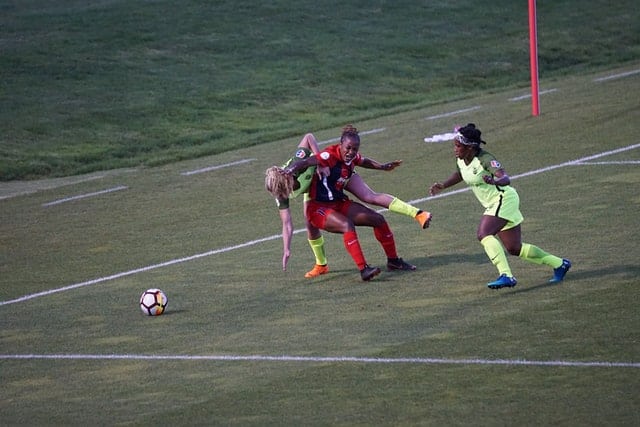After you watch a number of soccer games, you realize that the coaches of most of the soccer teams do not make early substitutions in the game unless it’s extremely urgent (An early injury for example).
But in general, most soccer coaches wait till after the 60th minute in the game to make their substitutions. You can learn more about the duration of a soccer game from this article.
There are also coaches that make literally last minute substitutions during a soccer game. But why?
The main reason behind the late substitutions in soccer is the small number of substitutions allowed for each team by the soccer rules. During a soccer game, each team is only allowed 3 substitutions which makes the coaches want to use these substitutions wisely and leave them till the second half of the game to make instant changes when needed.
In this article, I’ll list most of the direct and indirect reasons behind the well known late players substitutions in soccer, and I’ll also leave a separate section for the reasons behind the last-minute substitutions too.
Why do soccer substitutions come late in general?
Late substitutions:
1- Give an advantage to the fresh players that are joining the game late.
A soccer game requires a lot of stamina and physical endurance. Usually, the soccer players who participated in the first half get tired during the second half and their performance keeps dropping as the game approaches the end.
If a soccer coach makes a number of late substitutions, then the opponent players who have been playing for a long period of time will be tired and this will give the substitute players an advantage against the opponent.

If the coach decides to substitute the player in the first half of the game (early), then the player won’t have a huge advantage because they will eventually get tired during the second half of the game even if they didn’t start from the beginning of the match.
For this reason, the coaches try to save their substitutions till the late stages of the game just so that the fresh players get a high advantage against their opponent when it comes to endurance.
2- Save at least one substitution to replace injured players
As mentioned before, a soccer team only gets 3 substitutions during the whole game.
If a player gets injured to the point that they can’t continue playing till the rest of the game, then the coach will have to spend one of the 3 substitutions in order to replace the injured player.
If the coach has already used all of their substitutions, then they won’t be able to replace the injured player and thus the team will continue the game while missing a player.
For this reason, soccer coaches save at least one substitution and they use it late in the game when they are sure that even if a last minute injury occurs, the team will be able to maintain the results while playing with a smaller number of players.
3- Give young players a chance to play
For a soccer team to maintain consistent results throughout multiple seasons, they always need to get new young players to the team and they also need to give them time to adapt to the game and learn from the experienced players on the field.
For this reason, many soccer coaches make late substitutions to let young players join the team for at least a few minutes of a game. These minutes will give the young and new players a chance to improve themselves and gain experience for playing in front of a large audience.
Now the reason these young players are substituted in a late stage of the game is because they might not be ready yet to play more than a short amount of time in the game.
So, the coaches wait till the match is about to end and then they make the late substitution to give a young player a chance to play for a few minutes.
As a side note, developing the skills of young soccer players is extremely important for any soccer team.
If a soccer team can’t let a young player play with them for some reason, then they might send the player on a loan to another team for a short period of time just to give them the chance to develop their skills. In other words, giving young players play time in soccer is very important.
4- Let the key players rest and keep them protected from injury
If a soccer coach is 100% sure that they have secured the victory of a game even if the game hasn’t finished yet, then they might decide to substitute the players that need some rest just so that these players become more ready for the team’s next game.
However, these kinds of substitutions are usually late substitutions since the coach can’t really be 100% sure that they have won the game unless there isn’t a lot of time left for the game to end and unless they have scored a lot of goals.
Some coaches also make late substitutions to protect their top players from injury. During intense soccer matches, if one team knows that they have completely lost the game, then they might decide to start fouling their opponent players just out of pure anger.
During these scenarios, the coach of the winning soccer team may decide to take their top players off the field just to protect them from any possible injury due to the reckless way their opponent may be playing.

Again, these kinds of substitutions are late because the opponent usually only loses hope of winning the game when there’s little to no time left till the game ends.
5- Protect the players from a red card
A red card in soccer will send a player off the field and they will prevent the player from playing a number of upcoming matches too (usually one).
So in simple words, a red card is a coach’s nightmare. If you don’t know a lot about the carding rules in soccer, then all you need to know for now is that 2 yellow cards in soccer are equivalent to a red card.
This means that if a player gets 2 yellow cards, then they are forced to leave the field.
But what does this have to do with substitutions? Well, here’s the thing.
If a soccer player gets a yellow card during the game, and they start acting in an aggressive manner on the field during the last minutes of the game because their team isn’t doing well, then the coach may decide to take the player off just to make sure that they do not get another yellow card.
Again, these substitutions come late in the game because most players will try to calm themselves after they get a yellow card if they know that there’s a lot of time left till the game ends. However, these players may start acting less careful as the end of the game approaches.
If you want more article related to carding in soccer, you can check these 2 articles:
Alright, these are the main reasons behind the late substitutions in soccer, But… what about the SUPER LATE substitutions which are usually called the last-minute substitutions?
Why do soccer teams make last minute substitutions?
Last minute substitutions may sound completely useless, but they are extremely important in some cases. Here are some of the reasons why last minutes substitutions in soccer are a thing:
1- Waste the opponent’s time.
This is by far the biggest reason why some teams make last minute substitutions.
Let’s say that a team is winning by a one goal difference, and that there are only less than a few minutes left till the game ends.
If the winning team makes a substitution during these minutes, then the losing team will lose precious seconds and they’ll also lose some of their momentum since the game stops for at least 30 or more seconds during substitutions
Also it’s worth noting that in these scenarios, the player who is getting substituted tries to leave the field as slowly as possible just to waste more time while leaving. As you may already know, the clock in soccer keeps moving even if the game is stopped, which means that substitutions can be used to waste time.
2- Boost the team’s enthusiasm
If a team is losing and there are less than a few minutes left, then the coach of the team might decide to do a last minute substitution just to remind the players that the game is still on and that the coach is still trying to win the game even if it seems impossible.
Usually, a last minute substitute of a team that is losing will immediately run to the field and start shouting and motivating their team players to push hard and attempt to score a last minute goal to end the game with a win or a tie.
The substitute may also score the last minute goal themselves because they will be the only player on the field with full stamina and full endurance while most of the other players are very tired from playing the whole match.
With that said I’ll end the article here, Here’s a summary of what you have just read.
SUMMARY
In soccer, most of the substitutions are late, and the main reason behind this is that there aren’t a lot of substitutions allowed for each team so the coaches of these teams will try to save the substitutions till they are absolutely needed.
As for the last minute substitutions, these are usually done to either waste the remaining time of the game, or to motivate the losing team to keep pushing till the very last minute of the game.
Did you know that a soccer player can refuse substitution? Check this article out to learn more about this.

